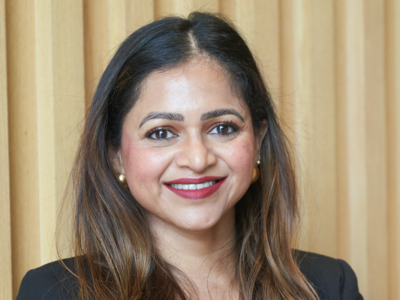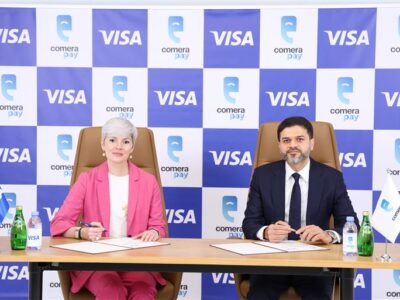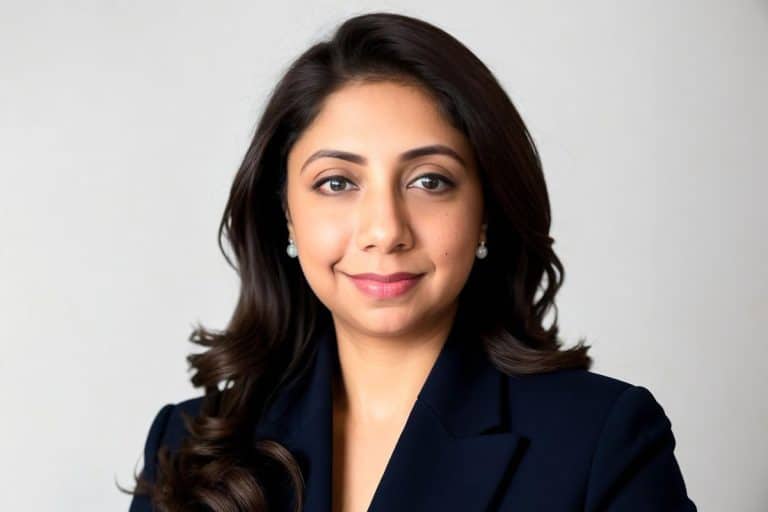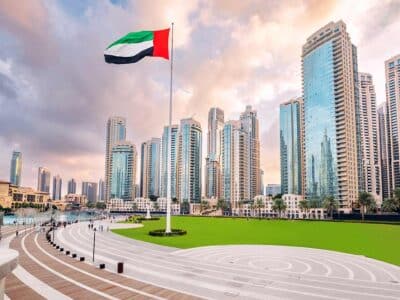This year’s Gulfood Manufacturing event is more than your average trade show for Tetra Pak. It’s a unique opportunity where the company’s mission—captured in the theme “unlocking potential”—takes on real meaning. Sonya Kayani, Communications Director for Tetra Pak in the Greater Middle East and Central Asia region, highlighted this in a recent conversation with Arabian Business. She emphasised that it’s not just about delivering innovative products but about transforming how food packaging firms tackle critical issues like sustainability, health, and food security.
Tetra Pak has been a major player in the Gulf’s food and beverage industry for over four decades, establishing a presence that extends beyond Saudi Arabia and across 11 other countries. This deep-rooted commitment to the region aligns with the values of local clients and governments, combining innovation with sustainability to support regional objectives. And if Gulf Food Manufacturing is on track to become the world’s largest food and beverage manufacturing event, as Dubai has set out to make it, Tetra Pak seems more than ready to rise to that ambition with equally impactful initiatives.
Consider Tetra Pak’s emphasis on sustainable packaging material. As Sonya explained, their carton packages are 70 per cent recyclable—a reflection of their dedication to sustainability across the entire value chain. For Tetra Pak, this isn’t just a claim; it’s reinforced by tangible action, including over 200 recycling facilities globally and partnerships in Saudi Arabia with Obeikan Paper Industries and Saudi Top Plastics that sort, and recycle materials. At their Gulfood Manufacturing booth, visitors can expect to see furniture made from 3D-printed, recycled carton packages and a smart bin machine that transforms empty water carton packages into recycled products, promoting a circular economy.
Tetra Pak’s involvement in the region also plays a crucial role in enhancing food security, which for them is more than just a trending term; it’s a vital part of their mission to improve lives. Using an advanced aseptic technology comprised of six layers, Tetra Pak can preserve food without the need for preservatives or refrigeration—perfect for areas where access to cold storage is limited. Their school feeding programs in Yemen and Iraq, providing essential nutrition to thousands of children, are tangible examples of this commitment. These programs don’t just guarantee access to safe, nutritious food; they’re making a measurable difference in children’s health and academic progress.
Tetra Pak drives sustainability
Furthermore, Tetra Pak remains highly responsive to changing consumer preferences, insights reinforced by their Tetra Pak Index, which surveys 5,000 consumers worldwide. This in addition to market-focused research reveals that 64 per cent of Saudi-based consumers are concerned about whether their food products are ethically and sustainably sourced.
Responding to this trend, Tetra Pak is exploring with customers packaging for plant-based products and ingredients made from alternative proteins, catering to an increasing demand for healthier, environmentally conscious diets. These aren’t passing fads; they’re becoming central to Tetra Pak’s offerings to customers.

Looking ahead to COP29, Tetra Pak’s ambitions are truly global. As Sonya noted, the company is advocating for a broader inclusion of food systems in international climate agendas. Given that food production is a major contributor to global greenhouse gas emissions, Tetra Pak believes that packaging and processing must be integral parts of the solution. They are encouraging governments to think beyond just farming and finished products, integrating the entire value chain into sustainability initiatives. By doing so, Tetra Pak isn’t just working toward their own net-zero targets by 2050 but pushing for sustainable practices to become standard across the industry.
At this year’s Gulfood Manufacturing event, Tetra Pak is positioning itself as more than just a packaging provider; they’re an end-to-end solutions partner. Their offering extends to processing solutions through smart factory technology and automation, enabling clients to conserve water, electricity, cut waste, and operate more sustainably. This is where the idea of “unlocking potential” truly resonates: it’s about going beyond packaging products and extending to a shared commitment with customers to build a sustainable future.
This year’s Gulfood Manufacturing event will showcase Tetra Pak’s wide-ranging initiatives—from plant-based soft serve to a booth built from recycled Tetra Pak packaging material, all reinforcing their dedication to sustainability and innovation. Located in Hall 2 at the Dubai World Trade Center, the Tetra Pak booth promises to be more than just a display; it’s a clear testament of Tetra Pak’s vision for the future of food packaging and manufacturing in the Gulf and beyond. For industry leaders and consumers alike, it’s a reminder that “unlocking potential” is as much about responsible choices as it is about economic growth.
Brand View allows our business partners to share content with Arabian Business readers.
The content is supplied by Arabian Business Brand View Partners.








